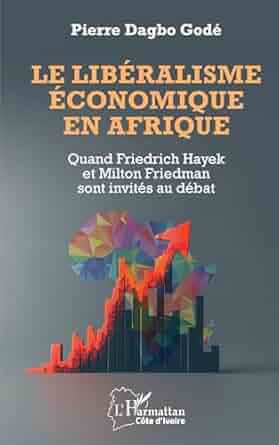Pierre Dagbo Godé presents an ambitious program of policy reform for African countries, based on the liberal theories of Friedrich Hayek (Austrian school) and Milton Friedman (Chicago school). He strives to adapt these theories to the structural and cultural peculiarities of African countries. Beyond the principles, he applies to present concrete cases of countries in a situation of success or failure. He notes that most of them had to free themselves after the Second World War, with more or less success, from colonization by European states, which have set up for more than two centuries “rentier economies” based on the exploitation of natural resources, especially for the benefit of local elites.
The author advocates applying the principle of “laissez-faire” and limiting the roles of the State, both as “arbiter and strategist”, to the exercise of justice, respect for public safety, and the fight against social inequalities. Institutions must be stable and borders must be sufficiently open to promote trade between Africans and with third countries. Imports should not replace local production and exports should finance infrastructure and assist the most disadvantaged populations. States must also prohibit monopolies and promote competition between local and foreign companies. They must supervise the informal economy without eradicating it because it is the breeding ground for tomorrow’s SMEs/SMIs. They must therefore practice “smart protectionism”. They must avoid any centralization of power, authoritarian planning, excessive bureaucratization, endemic corruption, and arbitrary intervention in the markets. To support economic development, states must guide, in conjunction with foreign universities and NGOs, education and training in the most job-creating professions, such as computer science and artificial intelligence. Pierre Dagbo Godé cites Rwanda, Botswana, Zambia, Kenya, and Uganda as the most committed countries.
The author also advocates for pan-African unions, better market integration, and more mobility of workers from one country to another. He analyzes the progress – which he considers still insufficient – of African banking and the Development Assistance Bank (ADB). He compares the actions of the AfCFTA (African Free Trade Area), the ECOWAS (West African Community), the SADC (Southern African Community) and the COMESA (East African Community). These associations have promoted trade by limiting tariff and non-tariff barriers.
The book reflects the conviction of its author, according to which Africa, rich in its youth and its natural resources, can find in the principles of economic liberalism the keys to its future.
Pierre Dagbo Godé is an Ivorian politician, and the author of several economic and political works.
J-J. PLUCHART


